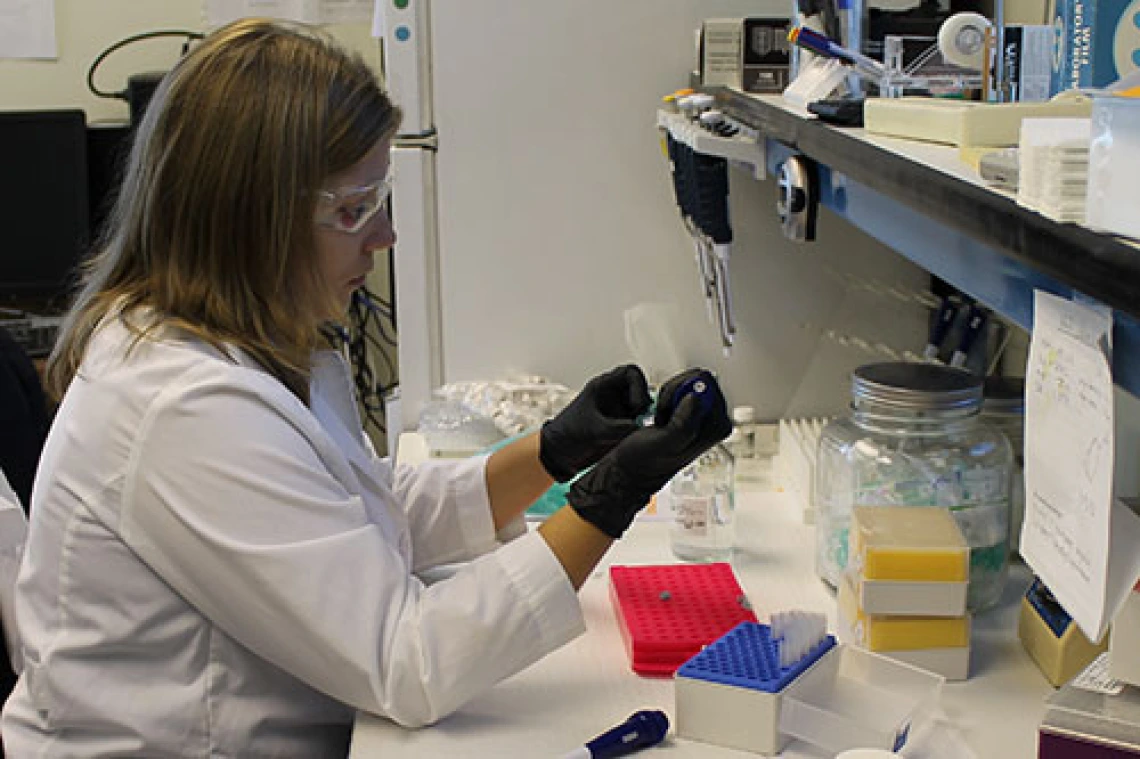Biotech Company Based on UA Invention Works to Change Pest Control

Image credit: SenesTech
Tucson, Ariz. — University of Arizona-born startup company SenesTech has been honored as a winner of the AZBio Fast Lane Award. The AZBio Awards honor bio industry leaders from across Arizona that show the depth, breadth and expertise of the state’s bioscience industry.
Headquartered in Flagstaff, SenesTech is a platform biotechnology and research company that has developed an innovative technology for managing animal populations by targeting their ability to reproduce as opposed to lethally poisoning those populations. The concept behind the company’s nonlethal solutions originally was developed in the laboratory of Dr. Patricia Hoyer, a professor at the University of Arizona College of Medicine.
The company was started by one of Hoyer’s post-doctoral fellows, Dr. Loretta Mayer, SenesTech’s CEO and chief scientific officer. The technology used in the product was developed by Dr. Cheryl Dyer, chief research officer.
The company’s solution offers a number of advantages over traditional rat population control. Studies have shown that the SenesTech formulation, delivered through a liquid bait, chemically accelerates the depletion of ovaries in female rats and causes testicular disruption in male rats. After ingesting the treatment, the rats become infertile, but the treatment causes no systemic toxicity or adverse side effects. Studies also show that when used as directed, the treatment is quickly metabolized, residing in rodents’ blood for less than 15 minutes before being broken down. It also is environmentally neutral, does not affect the food chain and has no reported toxic effects on humans.
The University of Arizona first applied for the patent for the technology in 2002 and licensed the patent exclusively to SenesTech in 2005.
“We saw the potential of this compound and wanted to start a company that could stop needless killing of animals and provide a better solution for animal population management,” Mayer says.
SenesTech employs 30 people at its main office in Flagstaff and a small office in Phoenix. Its ties to the UA continue through Hoyer and Tech Launch Arizona.
“This is a wonderful story about how discovery research can move from the lab to an application that will have significant global impact,” says David Allen, vice president of TLA.
Future applications may include wildlife population management and animal chemical spay technology, which could develop into a nonsurgical alternative for spaying and neutering cats and dogs.

